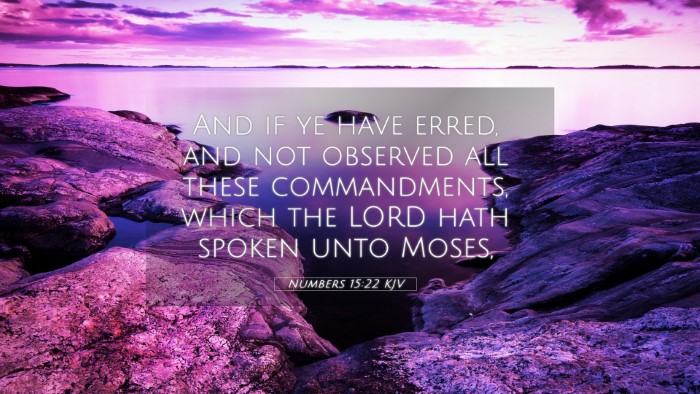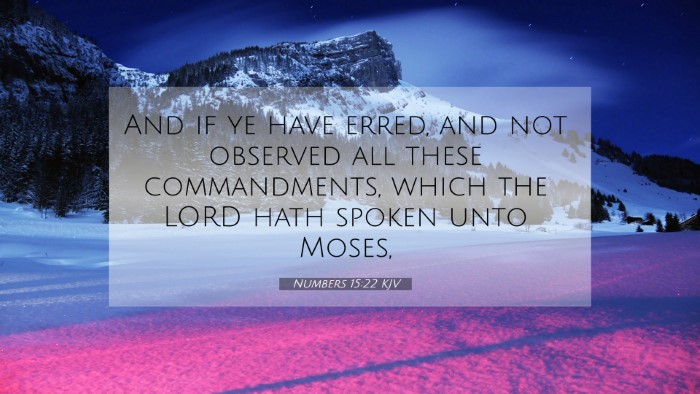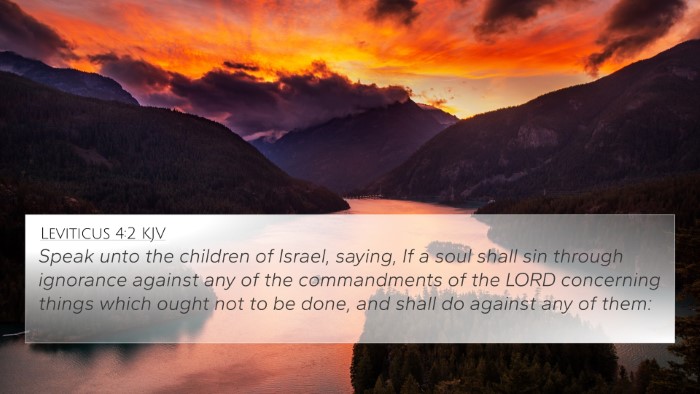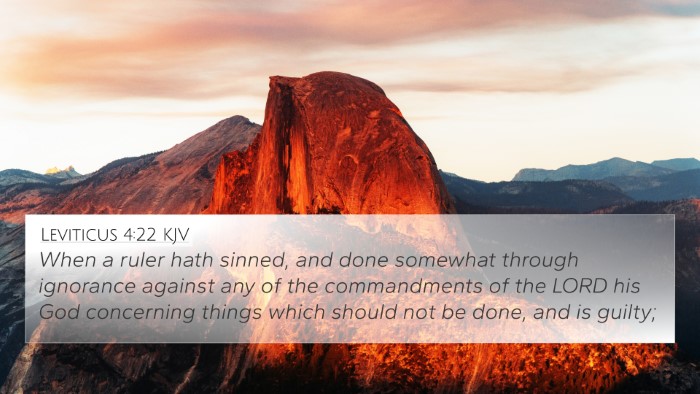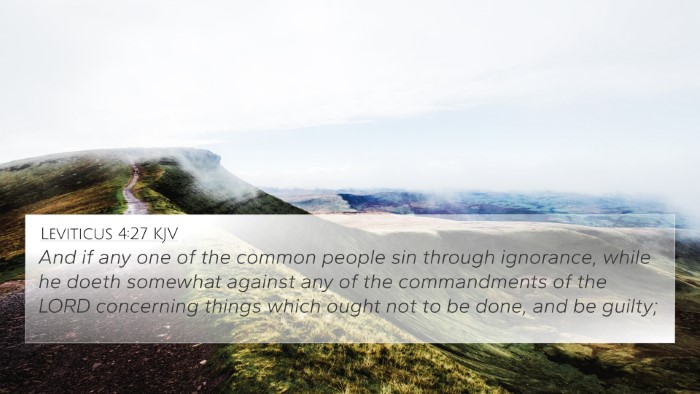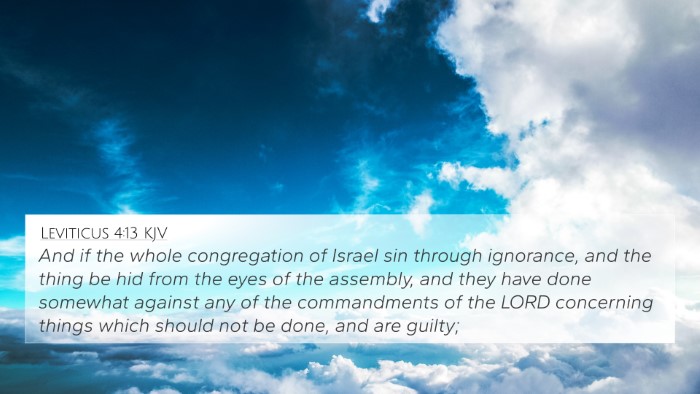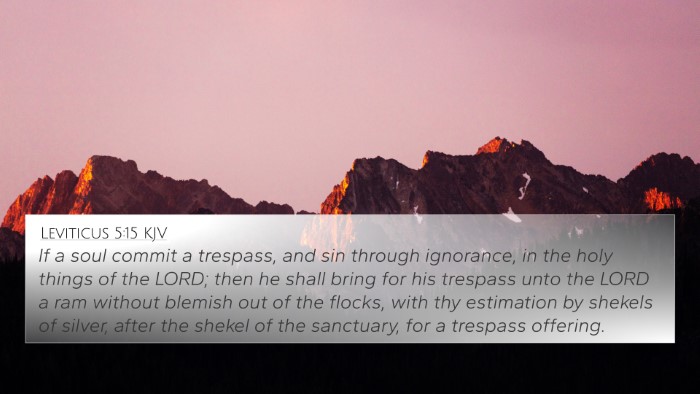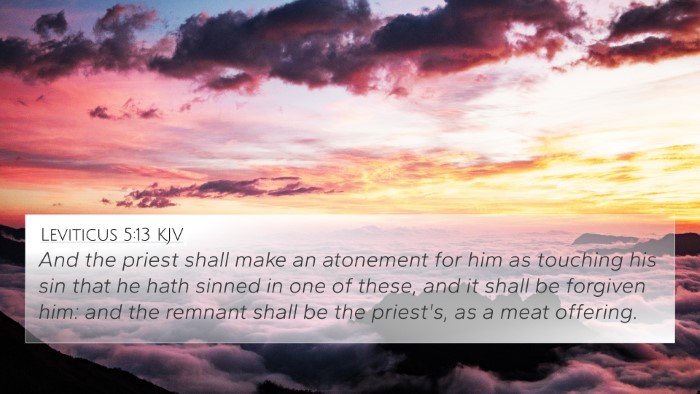Bible Verse Meaning: Numbers 15:22
Verse Context: Numbers 15:22 states, "If you sin unintentionally, and do not observe all these commandments which the Lord has spoken to Moses." This verse is part of a larger discourse regarding the laws given to Israel concerning offerings and atonement.
Summary of Insights from Public Domain Commentaries
Matthew Henry's Insight: Henry emphasizes the importance of understanding the distinction between intentional and unintentional sins. He remarks that the Israelites were given meticulous laws to observe, and transgressions—even unintentional—held significance. The divine regulations reveal not just God’s holiness, but also the need for atoned humility. Furthermore, Henry suggests that this notion cautions believers today to approach God with reverence and acknowledge the gravity of sin.
Albert Barnes' Commentary: Barnes purports that this verse lays the foundation for understanding the sacrificial system within the Mosaic Law. He points out that while unintentional sins were recognized, the provision for forgiveness displayed God’s mercy. The necessity of recognizing sin in any form weaves into the broader fabric of scriptural understanding, accentuating the connection between sin, repentance, and restoration in the covenant relationship with God.
Adam Clarke's Explanation: Clarke notes that the mention of unintentional sins reflects the imperfections of human nature. He encourages believers to grasp that even minor oversights in spiritual observance required acknowledgment and rectification. Clarke expands on the implications of community and individual responsibility—illustrating how communal statutes impact personal conduct towards God’s commandments, inviting faithful action in light of collectively held beliefs.
Cross-References to Numbers 15:22
- Leviticus 4:2: Discusses sin offerings for unintentional sins, highlighting the need for atonement.
- James 4:17: Addresses the nature of sin in knowing the good one ought to do and failing to do it.
- 1 John 1:8-9: Emphasizes the importance of confession for forgiveness, relating to the acknowledgment of sin.
- Psalms 19:12: Reflects a heartfelt plea for God to reveal hidden faults, resonating with the idea of unintentional sin.
- Hebrews 10:26: Discusses the severity of deliberate sin as contrasted with the awareness of sin.
- Luke 12:47-48: Outlines the distinction between varying degrees of culpability in the context of knowledge and action.
- Matthew 12:36: Warns that people will be accountable for every careless word, overall connected to thoughtfulness in one’s spiritual life.
Thematic Connections and Analysis
This verse encapsulates significant themes in the Bible regarding sin, atonement, and divine mercy. The relational dynamics between God and humanity are further enriched through comparative Bible verse analysis which reveals various threads interwoven throughout the scriptures:
- Divine Law: The establishment of laws serves a dual purpose of guiding conduct and demonstrating the need for a savior.
- Forgiveness: The unintentional sins acknowledged in Numbers 15 point towards God's willingness to forgive those who seek Him sincerely.
- Biblical Accountability: The notion of being accountable for all actions imbues the idea of moral and spiritual vigilance among believers.
- Community Responsibility: The laws given to Israel foster a sense of collective observance and personal responsibility towards each other and God.
Understanding Numbers 15:22 in Contemporary Application
Today's believers can learn valuable lessons about the nature of sin, community standards, and the grace offered through atonement. Understanding the implications of unintentional sins can encourage believers to live reflectively, striving for holiness while relying on God's mercy and grace. This approach fosters a strong foundation for individual and communal faith practices.
Conclusion
The cross-references and thematic connections stemming from Numbers 15:22 highlight an essential aspect of the Christian faith—the recognition of human imperfection and the necessity of seeking forgiveness. The merciful character of God is evident in His willingness to provide atonement for unintentional transgressions, urging believers into a deeper relationship with Him through both awareness and repentance.

